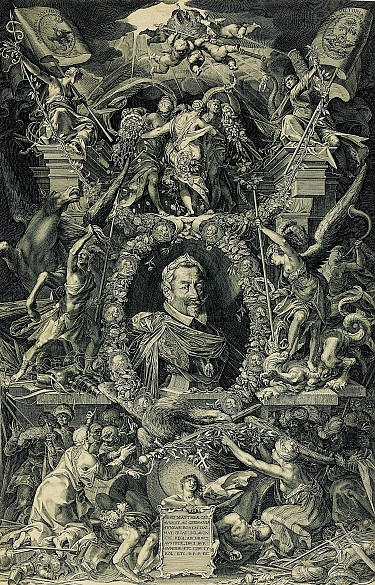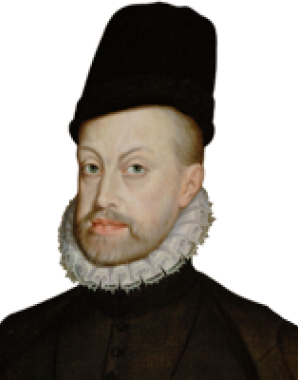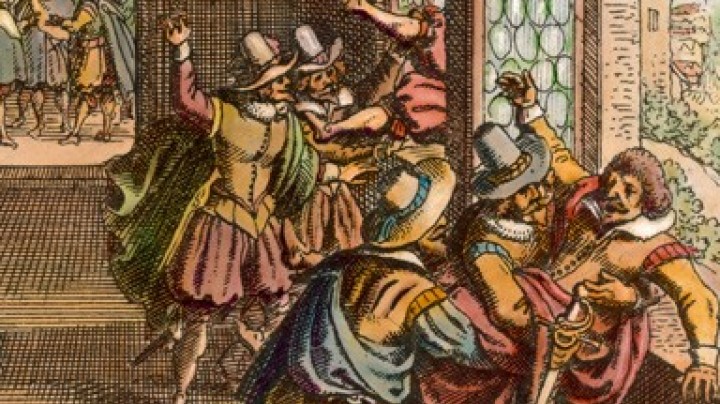Matthias and Rudolf II: the beginning of the ‘Bruderzwist’
Having returned chastened from his adventure in the Netherlands, Matthias started looking for a role commensurate with his rank as an archduke.
In the following years Matthias made a number of vain attempts to secure a religious benefice, for example putting his name forward for the bishoprics of Liège, Münster and Speyer. But without strong support in the dynasty and considered an outsider following his antics in the Netherlands, the archduke had little chance, especially given his rather lax attitude towards the Catholic cause. Matthias was also briefly considered as a candidate for the vacant throne of Poland, and as regent of Tyrol, but here too he was unsuccessful.
It was not until 1594 that an opportunity presented itself: his brother Archduke Ernst was commandeered by Phillip II as governor of the Netherlands, leaving vacant Ernst’s position as governor of the two Austrian archduchies in the service of Rudolf II. Rudolf resided in Prague and therefore needed a representative in the Danubian territories. Matthias was given the post, but was immediately confronted with immense difficulties. His indecisiveness meant that he had little more to counter these problems than to insist on his rights as ruler. Because of the imminent danger of Ottoman expansion the mainly Protestant noble Estates had an effective means of exerting pressure on their ruler: taxes for the planned offensive had to be authorized by the diet, and the Estates expected a quid pro quo for their consent, above all in the shape of religious concessions. His regency was further overshadowed by the peasants’ revolt of 1595 to 1597, which had arisen from an explosive mixture of social and sectarian conflicts.
Matthias lashed out with force, perhaps from a sense of powerlessness. His political decisions came under increasing influence from Melchior Klesl (1552–1630), who became the éminence grise behind the archduke. From a humble background, Klesl made a career as an intelligent and wily tactician between the fronts. Born a Lutheran, he converted, entered the Jesuit order and rose rapidly through the ranks of the Catholic clergy. As bishop of Wiener Neustadt he was entrusted with the general administration of the Counter Reformation in the Austrian dominions. Later appointed rector of the University of Vienna, he eventually became a cardinal and bishop of Vienna. As a representative of a rigid counter-reformatory course and a social climber, he became an object of hate in the eyes of the Protestant nobility. Originally seen as belonging to the political camp of Rudolf II, Klesl distanced himself from his erstwhile supporter and defected to the side of Matthias when the conflict between the two brothers started to emerge.
Under Klesl’s guidance Matthias became one of the main figures in this intra-familial conflict that had broken out in the face of Rudolf II’s advancing mental decline. It also involved the question of the succession, as Rudolf was unmarried and had no legitimate issue. Matthias moved up to become first in line, working ever more openly against his brother, who in turn responded with unconcealed hatred.
The crisis within the dynasty was exploited by the Estates, who opposed strong royal dominion. Their tactical approach was to play off both parties against each other, both of which had to make painful concessions in order to buy the support of the Estates. A classic example of how Habsburg power was declining was the situation in Hungary, where a rebellion occurred in 1604. The Transylvanian prince Stephen Bocskai (Hungarian: Bocskai István) set himself up as the leader of a religiously liberal regime in the Habsburg part of Hungary, promising to preserve the freedoms of the Hungarian nobility, who were opposed to Catholic Habsburg rule. The Habsburg negotiation position was constrained by the looming threat of the Turks being able to exploit the unstable situation in Hungary for further conquests. Matthias’s attempts to make the best of a bad job were deliberately sabotaged by his rival brother Rudolf. Nevertheless Matthias managed to defuse the situation to a certain degree by means of extensive concessions. The price for this was the guaranteeing of freedom of religion in Hungary. In 1606 the Peace of Zsitvatorok was concluded with the Turks. In the face of the evident success achieved by Matthias and his advisors, Rudolf saw himself forced to entrust his hated brother with the governorship of Hungary.














